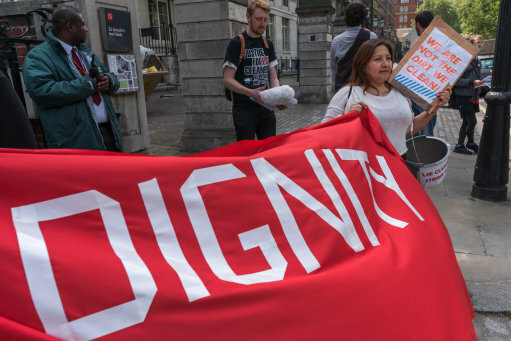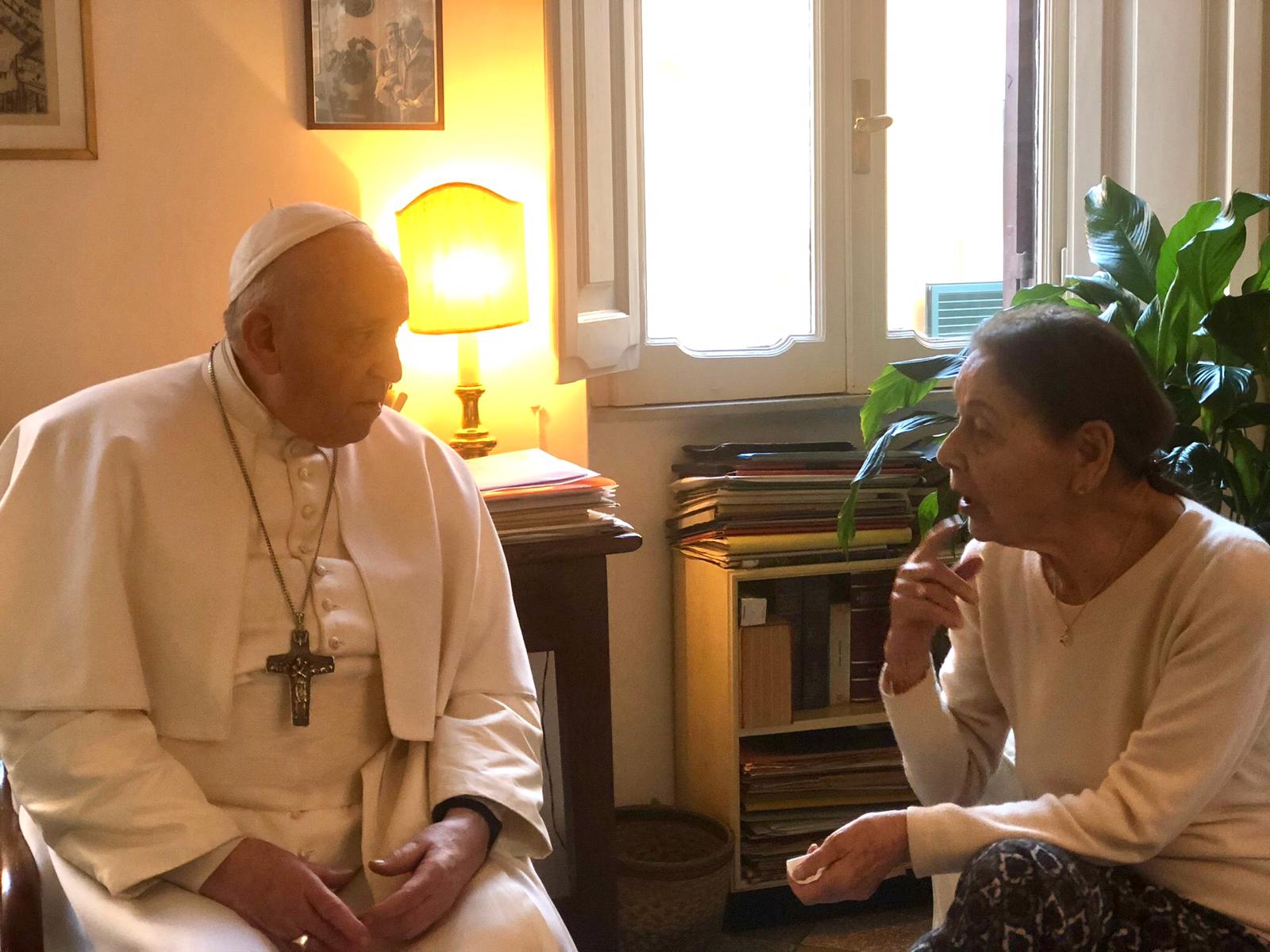Pope Francis has paid a surprise visit to Edith Bruck, a Holocaust survivor who has devoted her life to telling the story of surviving the Nazi concentration camps.
The Pope asked to meet the Hungarian-born author, poet and film writer after reading an interview she gave to Vatican newspaper L’Osservatore Romano about her experiences during the Second World War. At their meeting, which took place at the 89-year-old’s apartment in central Rome on Saturday, Francis asked forgiveness for the atrocities that were wrought on the Jewish people.
“I have come here to thank you for your testimony and to pay homage to the people martyred by the insanity of Nazi populism,” the Pope, 84, said. “And with sincerity, I repeat to you the words that I spoke from my heart at Yad Vashem and that I repeat before every person who, like you, has suffered so much because of this: [I ask] forgiveness, O Lord, in the name of humanity.”
Edith Bruck (Steinschreiber) was born on 3 May 1931 and, in 1944, with her family, was deported to Auschwitz. Most of her family members did not survive the Holocaust. She was then liberated in Bergen-Belsen together with her sister Eliz. In 1954, Bruck settled in Rome and married Nelo Risi, a poet and playwright.
According to the Vatican, the conversation between Francis and Bruck “revisited those moments of light with which the experience of the hell of the camps was punctuated” along with “the fears and hopes for the time in which we live”. The pair, who were joined by L'Osservatore Romano's director Andrea Monda, also discussed “the value of memory and the role of the elderly in cultivating it and passing it on to the young”.
In her recent interview with the Vatican's quasi-official newspaper, Bruck warned about the rise of fascism, echoing the Pope’s comparisons with contemporary populist leaders and dictators from the 1930s.
“I fear intolerance, lack of dialogue, mistrust of others,” she said. “I fear the winds of fascism that blow ever more often and spread dangerously in our lives”. But Bruck added that she has “hope in the younger generations, in a more rooted and widespread human and civil consciousness”.
Despite living through the horror of the concentration camps, she has refused to give in to bitterness and refers to the moments of “light” during her ordeal as including individual acts of kindness and the camaraderie among prisoners. Her aim is to keep the memory of that time alive.
“Evil begets only evil. I am proud to have had a victim father and I would have been ashamed to the depths of my heart of an executioner father,” Bruck said.
“Remembrance is suffering, but I have never tried to avoid it. Even enlightening a single conscience is worth the effort and pain of keeping alive the memory of what has been. For me, to remember is to live and to write is to breathe.”
She went on: “I have hope in this great Pontiff, Francis…I appreciate his clarity, the simplicity of one who speaks to be understood, the power of his convictions, his understanding of human frailties, the humility to say, Who am I to judge?.”
During his 2014 visit to the Holy Land, the Pope met Holocaust survivors at Yad Vashem, Israel's official memorial to victims of the Holocaust and two years later made a trip to Auschwitz, where he met survivors of the camp. While at Auschwitz, Francis made no public comments other than writing in the guest book: “Lord, have mercy on your people. Lord, forgive us such cruelty.”



 Loading ...
Loading ...